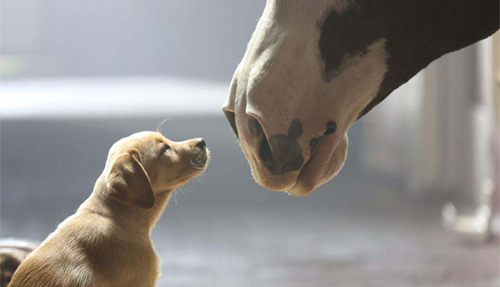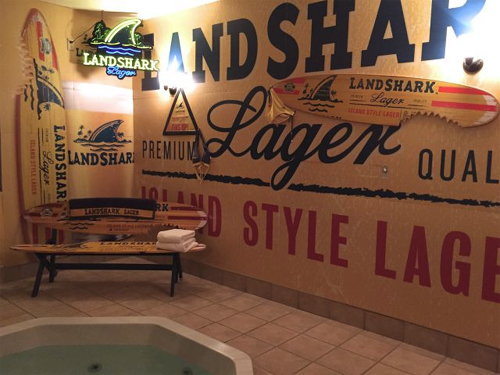Squaring Budweiser’s Bordello with Clydesdales and a Lost Puppy

Perhaps the biggest winner in the free media coverage of Super Bowl advertising has been the continuation of Budweiser’s “Puppy Love” spot from last year, in this year’s “Lost Dog” ad. Dozens of soft news stories have previewed it, helping it to draw 18 million YouTube views since its release last week.
This bordello’s for you
Yet, the same brand that sponsor’s clydesdales helping lost puppies also sponsors a Budweiser branded room and hot tub at Sheri’s Ranch, a legal bordello in Nevada. Sheri’s boasts this makes them the only bordello to have earned corporate sponsorship. (See the article in re/CODE which highlight’s the use of social media and emerging technology the sex trade.)
There are lots of ways to parse the ethics of this sponsorship. Technically it was established by Bud’s local distributor, who perhaps the parent brand could never conceivably control. And just because prostitution isn’t legal where you live, it might be just fine for Budweiser to promote it where it is. That’s your call, not mine.
My point is that Budweiser’s reach is so broad that the most fervent values across the groups that drink it are often incompatible. This can put the brand in a tough spot.
Bud may like the sex positive attitude of a bordello, but not the sex trade. It may like the hard core intensity of the Ultimate Fighting Championship, but not Nazi tattoos on its intense fighters. It sponsors NASCAR while quietly showing the LGBTQ community they care. And they bankroll the NFL, while calling it out for culture of violence toward women, which is only amplified through the use of alcohol.
Please, drink a lot, responsibly
No matter how hard we wrap beer with flags and puppies, its consumption isn’t focused on values. There’s a point at which rationality kicks in, and savvy consumers say “yes, but…”
The creators of South Park, Trey Parker and Matt Stone, recently took this on in a parody ad they made for Comedy Central. Fast Company describes this disconnect, which coincidentally calls out Budweiser by name.
Budweiser isn’t really the commodity in commercials for Budweiser—it’s the kickass good time that goes along with it. Budweiser is just the goofjuice that gets you to the good time.
Marketers lionize products, that’s the job. And every culture has intoxicants; from kids spinning on swings to Indian’s smoking peyote. But when this is extended to global brands that sell intoxicants, here’s only so much nuance a brand can carry.
There’s been a huge amount of attention on how colleges and the service academies respond to reports of rape. Recently the Chronicle of Higher Education ran a six article spread on the erosive effects of college drinking and the business behind it. Selling beer isn’t about horses or puppies, most consumers know that. Budweiser the brand may be shocked, but their distributors know their goals is to grow market.
Wrapping beer in values is a tricky move – but for ad firms its reflexive and feels safe. Budweiser spends a half billion dollars in advertising making it the twenty fifth largest advertiser in the US. But only 4% of drinkers age 21-27 age bracket have never tasted it.
Clydesdales, puppies, bordellos and sponsorships aren’t cutting it for Budweiser. Its brand is a monolith caught in the mushy middle, with its product is barely in frame.
Next ad, Bud should to bring some beer along with the marketing. Seriously, drinks and ads go together naturally, with just a garnish of values instead.


 The future of digital experiences will be built by strategists who grasp the full array of emerging business, social, and technical models. Specialties in user experience, branding, application design, and data science are laying the foundation for richer user experiences and business models breakthrough products and revenue based marketing.
The future of digital experiences will be built by strategists who grasp the full array of emerging business, social, and technical models. Specialties in user experience, branding, application design, and data science are laying the foundation for richer user experiences and business models breakthrough products and revenue based marketing.
2 Responses to "Squaring Budweiser’s Bordello with Clydesdales and a Lost Puppy"
February 2, 2015
[…] detached from beer that they could as well have been a shoe company. (I elaborate on this, and how Bud’s sponsored bordello is a great example of this storied brand being caught in the scale of its own marketing.) Later […]
August 25, 2020
sex göppingen is the best place for chatting with sexy girls